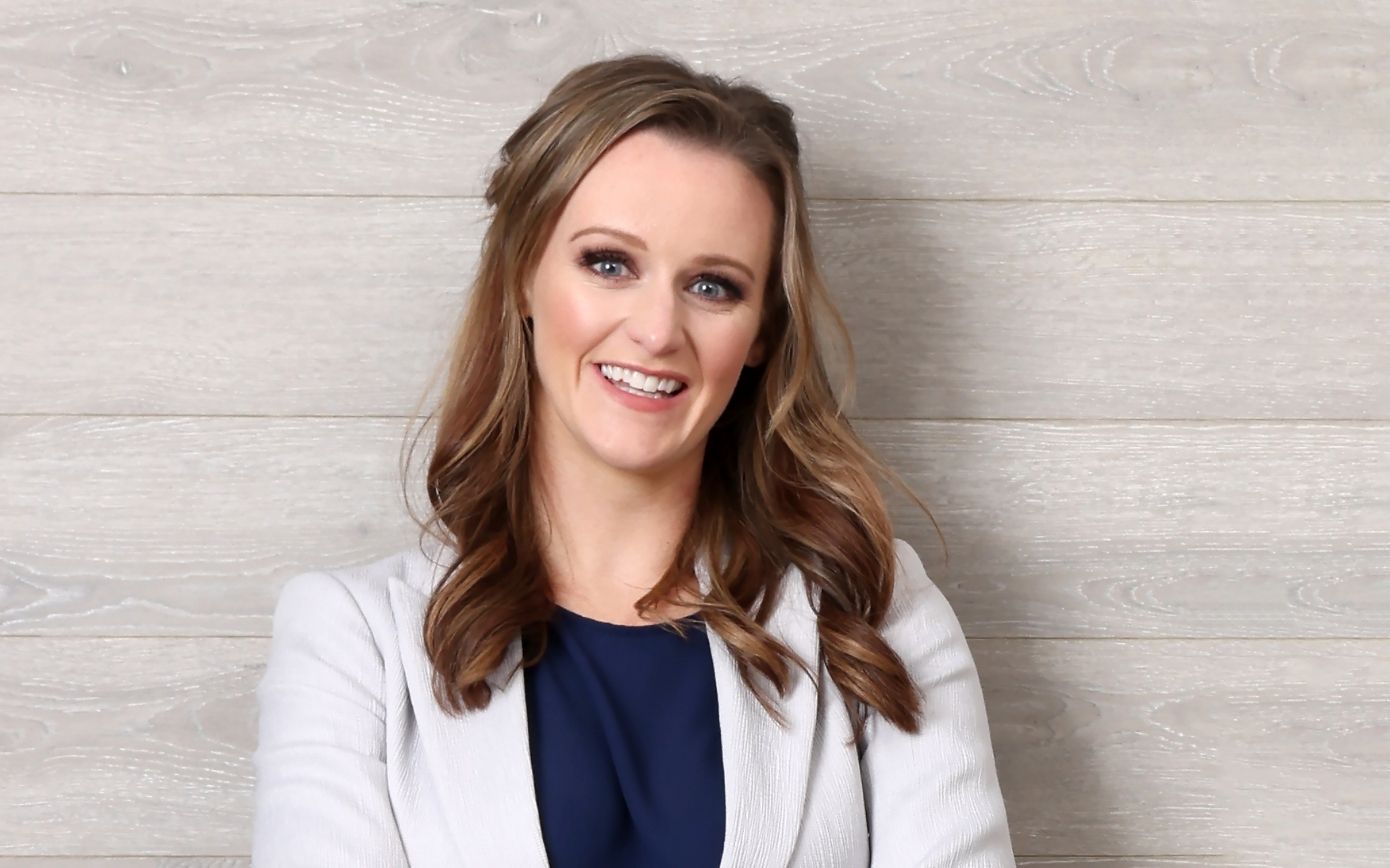Infertility is an issue that has a profound impact on the individual experiencing it – but breaking the taboo is a job for us all. Caitriona McPartlin, CEO of ReproMed, speaks to THE GLOSS about fertility awareness, the importance of women in decision-making roles, and why a progressive approach to maternity in general is needed in Ireland …
Caitriona McPartlin is committed to having open, honest conversations about fertility. “Advocacy and education are really important to us,” explains the 35-year-old CEO of fertility clinic ReproMed. During the Covid crisis, a lot of those conversations have had to take place in the virtual space, with ReproMed recording podcasts and webinars – but that hasn’t hampered their effectiveness.
“The most important thing that ReproMed can do and does do is actively create an environment where we’re allowing people to be free to feel how they want to feel about fertility and infertility,” says McPartlin. “We do that by making sure that we’re giving accurate information and that we’re talking about things more openly.”
ReproMed’s marketing is “as much as possible focused on educating as many people as we can about fertility”, she says: “We are using our own podcast series and our participation on The Good Glow Health Podcast to keep the conversation active about fertility … our social media platforms are used to educate and advocate as much as they are used for promotion.”
“We proactively advocate for our patients’ needs at governmental level when they facilitate engagement with fertility clinics regarding upcoming legislation,” McPartlin points out. “We ensured that we were extremely vocal during the pandemic to advocate on behalf of our patients to ensure that we could reopen as an essential service.”
She has no desire “to ram a discussion down people’s necks” but McPartlin is clear in her aim to get people talking about what has traditionally been a taboo subject. “I have a grand plan for ReproMed,” she says, “and a big part of that is to get our doctors engaging with university students so that they can be mindful of their fertility. We don’t want to perpetuate a culture where people are afraid of making the right decisions for their own fertility at a given point in their life. They shouldn’t be afraid of birth control, for example, because birth control is necessary – but we want to make sure that we create an environment where there’s an awareness of fertility from much earlier in our life cycles.”
ReproMed intends to engage with university student unions to provide online webinars for students about reproductive health and fertility, she explains.
“We want to make sure that we create an environment where there’s an awareness of fertility from much earlier in our life cycles.”
It is the reality, McPartlin acknowledges, that while infertility affects both men and women (male-factor infertility is thought to account for 50% of cases in which age is not a factor), it is women who do most of the heavy lifting on the issue. There are societal causes for this, of course – often, in our culture, it feels that womanhood is synonymous with motherhood – but there are also practical reasons. “We can’t lose sight of the fact that it is women who are typically the ones who have to go through more invasive procedures during fertility treatments,” McPartlin points out.
It’s for this reason that she thinks being a female CEO puts her at an advantage. “In general, across every industry, there should be more women in decision-making roles but it’s particularly important in our industry. It’s really important for female patients to know that there’s a female voice advocating for them in the background.”
Since being made CEO of ReproMed last summer, McPartlin has ensured that there are free period products available in the toilets at the company’s four clinics. “It’s small, practical details like that that make the journey for patients a little bit easier,” she says.
She has also been working on ways in which she can make life better for the almost 130 people who work at ReproMed, over 90% of whom are female. She has introduced a comprehensive maternity leave policy at the company – “I think to not have paid maternity leave for employees of a fertility clinic is a damning indictment of the organisation itself” – and all employees are now eligible for free fertility treatment if they need it.
She believes that the Irish government needs to be bolder in its thinking around maternity and fertility services, too. “A progressive approach to maternity in general is needed in Ireland,” she says. “We’re not a country that makes having babies or going through fertility treatments easy. For example, there’s no robust maternity payment – [the state maternity benefit] is quite a small amount of money if your employer can’t support you. [Having a more generous maternity benefit] would allow an element of choice for women. With that kind of support, women might not actually need to defer having kids until they’re older and they’re in a better financial position. The government might find themselves investing less money into fertility if they were to invest in maternity and reproductive services, allowing women to have kids earlier in life if they want to, rather than having to defer until later in life.”
Childcare plays a part, too, she says. “In Ireland, we are really lacking support for women and support for families. It doesn’t matter if it’s a heterosexual couple or a homosexual couple or a single woman – support for the family structure just isn’t there. So people are having kids later in life, and then they’re having trouble conceiving.”
As we begin to open up the conversation around fertility, it will be necessary to recognise how complicated it is. There is the changing science to consider – artificial intelligence will be a major game changer for the fertility sector over the coming decades, says McPartlin – as well as the societal structures that aren’t changing as quickly as most of us would like. Infertility is an issue that has a profound impact on the individual experiencing it – but breaking the taboo is a job for us all.
LOVETHEGLOSS.IE?
Sign up to our MAILING LIST now for a roundup of the latest fashion, beauty, interiors and entertaining news from THE GLOSS MAGAZINE’s daily dispatches.











